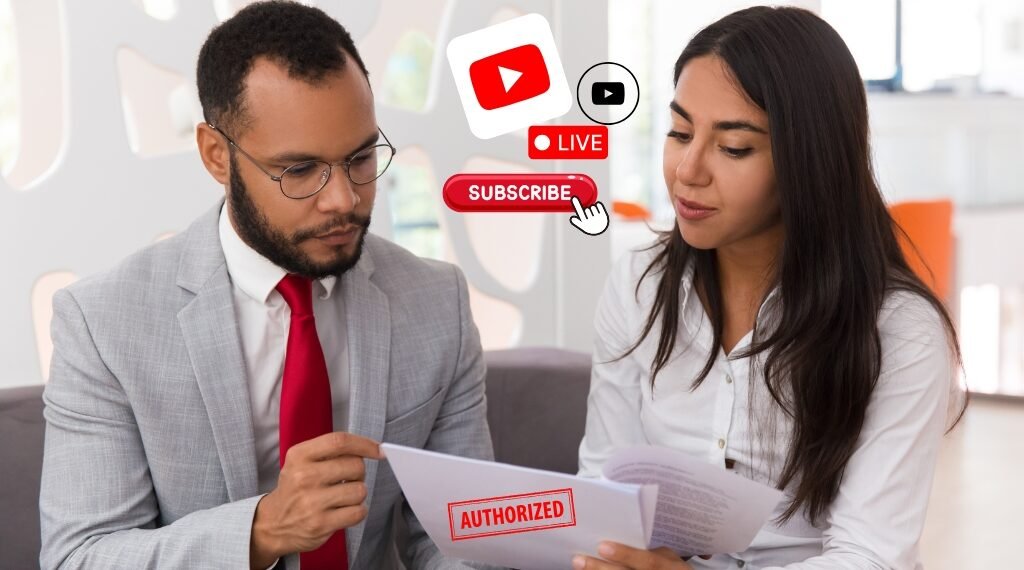Learn How to Use YouTube to Build Authority as a Legal Expert with strategic tips on content creation, branding, and audience engagement.
The question of authority building is no more one of expertise today in the digital space, but it’s all about visibility and gaining confidence. Legal experts have their platform in YouTube; it’s a place to prove expertise and showcase that legal discussions are friendly topics. Complicated ideas around the law will get simplified through this form of education, enabling even the lawyers to become thought leaders, building a relationship with potential clients on trust and crediting the service providers.
This article explores how legal experts can leverage YouTube effectively to build authority, offering practical tips and content ideas tailored to the legal profession.
Table of Contents
Understanding the Power of YouTube for Legal Experts
With about 2 billion monthly active users, YouTube is among the biggest search engines available worldwide. Those consumers are looking for rapid answers, guides, and professional expert guidance utilizing it. What that means for lawyers is that this is actually an audience that’s seeking clarity on everything from how to understand contracts to how to navigate family law.
The following are some of the ways legal professionals can make well-structured, educational videos:
The video format is particularly effective because it provides direct communication, creating a connection and authority that text-based content often cannot achieve.
Selecting the Right Topics
To establish authority, it’s crucial to concentrate on topics of interest to your target audience. Find areas of law that people are commonly misinformed about or where you have special knowledge that could be insightful. Consider the following:
Tailor your content to the specific needs of your audience, whether they are individuals seeking legal advice or businesses requiring guidance.
Creating Quality Videos
Quality is important in establishing authority. Poorly produced videos can easily dent your credibility, even if the content is very insightful. Consider the following aspects:
a. Clear and Professional Presentation
b. Technical Excellence
c. Structured Content
Organize your video into clear sections:
Optimizing Videos for YouTube Search
To establish visibility, your video must appear in search results. The YouTube algorithm emphasizes relevant, interesting videos that best fit for search. Here’s how to boost your visibility:
Engaging with Your Audience
Authority building is not only about content but also about relationship building. Involve your readers to foster trust and a feeling of community:
Tools to Enhance Video Creation
The right tools make creating quality content easier. For legal professionals looking to venture into YouTube marketing, investing in a video creator app can make it easier. An app like that will enable you to create professional videos with very little time investment by using pre-designed templates, text overlay, and automatic editing. It saves lots of time in production and enables you to invest time in delivering value to the audience.
Consistency and Commitment
Success on YouTube doesn’t come in one day; it’s a process. Regular posting keeps your audience engaged and helps the algorithm of YouTube to realize that your channel is alive. Make a content calendar for planning and knowing when your videos are due well in advance, ensuring that one stream of quality content follows another.
Content Ideas to Showcase Expertise
Here are some content ideas tailored for legal professionals:
Promote Your Channel
Good content production only makes up one side of the coin. Promotion of your channel is what brings your videos to the right audience:
Conclusion
YouTube is also an effective way for legal practitioners to establish themselves by sharing educational and enlightening materials on complex fields of law presented in a pretty easy-to-comprehend manner. Creating great videos, engaging actually with people, and persistence will make a legal professional be viewed and considered as one of the thought leaders in their field. Due course and fact, this builds visibility and credibility, leading to more clients in due course of action.
Start using YouTube today to take your legal marketing strategy to the next level!


